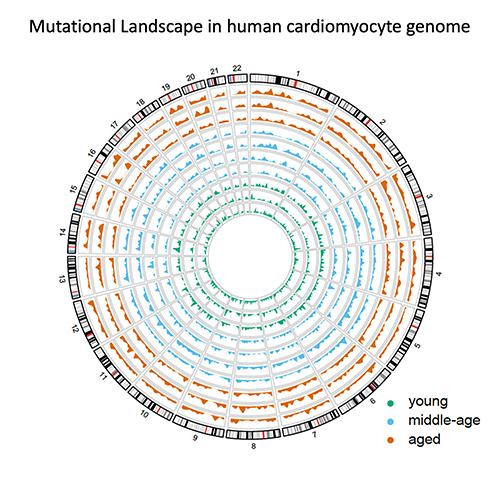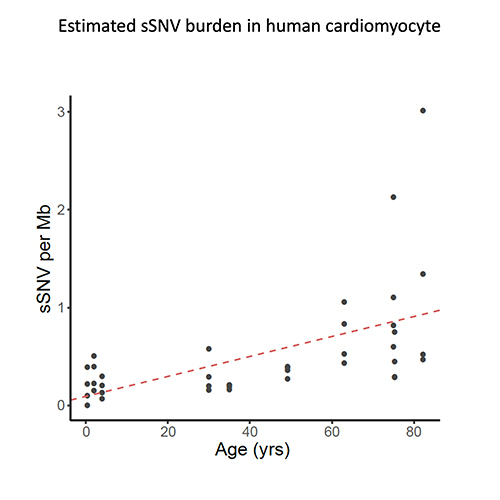SOMATIC MUTATIONS
Accumulation of non-clonal somatic mutation in human cardiomyocyte.


Advanced age is the single most important risk factor for many cardiovascular diseases, including atherosclerosis and heart failure. Most heart failure occurs in individuals over age 65 and yet we have an incomplete understanding of how aging promotes heart failure. The accumulation of somatic DNA mutations over time has recently been demonstrated to be a hallmark of aging in many human cell types. But genomic DNA changes in aging cardiomyocytes remain poorly understood. Our group is interested in deciphering the rate and consequences of somatic mutation in the human heart during development aging and disease progression. There has been a long-standing debate about whether non-dividing cells are protected from age-related mutation. Our lab has developed the first application of single-cell whole-genome sequencing (WGS) to the heart in diploid and multiploid cardiomyocytes. We utilize whole genomic approaches in combination with functional studies in order to understand the aging and disease progression in the heart.
↓
Related Publications
Somatic mutations in single human cardiomyocytes demonstrate accelerated age-related DNA damage and cell fusion
Choudhury S, Huang A, Kim JJ, Morillo K, Maury E, Zhou ZZ, Kenny C, Lee E, Chen M, Walsh C. 2020. Somatic mutations in single human cardiomyocytes demonstrate accelerated age-related DNA damage and cell fusion.
Research Square. DOI: 10.21203/rs.3.rs-84503/v1 PPR: PPR222890 View Abstract >

